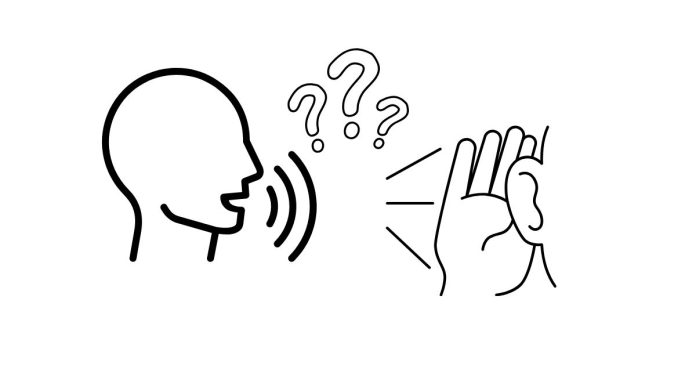The word “yes” is one of the most universally understood terms in any language, as it signifies affirmation, agreement, and approval. While the concept remains the same across cultures, the way to express it can vary significantly. In fact, knowing how to say “yes” in different languages can be a valuable tool for communication when traveling or connecting with people from around the world. Here is a look at how you can say “yes” in several languages:
1. English – Yes
The most straightforward “yes” is, of course, in English. This simple, single-syllable word is used for agreeing, confirming, or consenting in nearly every context.
2. Spanish – Sí
In Spanish, the word for “yes” is sí (pronounced “see”). It’s one of the most commonly used words in Spanish and is essential for forming positive responses to questions or requests.
3. French – Oui
In French, oui (pronounced “wee”) is the term for “yes.” It is used in much the same way as in English, to affirm or agree with something. Interestingly, si is also used in French, but it’s used to contradict a negative question (e.g., “Tu n’as pas faim?” – “Si, j’ai faim” meaning “Yes, I am hungry”).
4. German – Ja
In German, the word for “yes” is ja (pronounced “yah”). It’s a simple, straightforward affirmation that is used in many situations, from agreeing to confirming information.
5. Italian – Sì
Similar to Spanish, the Italian word for “yes” is sì (pronounced “see”). The accent over the “i” distinguishes it from “si,” which has a different meaning (it’s used for the reflexive pronoun or conditional verb forms).
6. Portuguese – Sim
In Portuguese, you would say sim (pronounced “seem”). Like its Spanish and Italian counterparts, it is used to indicate agreement or affirmation.
7. Japanese – はい (Hai)
In Japanese, the word for “yes” is はい (pronounced “hai”). It is a polite affirmation used in a variety of contexts, and it’s also common in formal situations, like in business or when talking to someone older or of higher status.
8. Mandarin Chinese – 是的 (Shì de)
In Mandarin, 是的 (pronounced “shì de”) is the most direct way to say “yes.” It literally means “it is” or “that is,” used to confirm a statement or question. A simpler affirmation in conversational settings can be 对 (duì), meaning “correct” or “right.”
9. Russian – Да (Da)
In Russian, да (pronounced “dah”) is the word for “yes.” It’s short, simple, and widely used across the Russian-speaking world.
10. Arabic – نعم (Na’am)
In Arabic, the word for “yes” is نعم (pronounced “na’am”). The word is formal and can be used in many contexts to confirm or agree with someone.
11. Hindi – हाँ (Haan)
In Hindi, हाँ (pronounced “haan”) is used to say “yes.” It’s a common word in everyday conversations, especially in India and other Hindi-speaking regions.
12. Swahili – Ndiyo
In Swahili, the word for “yes” is ndiyo (pronounced “ndee-yo”). It’s used to affirm or agree with something, and like in many other languages, it plays a key role in conversations.
13. Turkish – Evet
In Turkish, evet (pronounced “eh-vet”) is the word for “yes.” It is used in both formal and informal settings and is a critical part of Turkish conversation.
14. Korean – 네 (Ne)
In Korean, 네 (pronounced “ne”) is the word for “yes.” It’s frequently used in polite or formal situations, and like in Japanese, it’s important to show respect when using this affirmation in communication.
15. Dutch – Ja
In Dutch, ja (pronounced “yah”) is also the word for “yes”. It’s similar to the German version and is used in nearly every context where confirmation or agreement is needed.
16. Greek – Ναι (Ne)
In Greek, the word for “yes” is ναι (pronounced “neh”). It is widely used to affirm statements or agree to requests in both casual and formal conversations.
17. Finnish – Kyllä
In Finnish, kyllä (pronounced “kyl-lah”) is used to express agreement or affirmation. It is also used in more formal contexts and can imply a strong positive response.
18. Hebrew – כן (Ken)
In Hebrew, כן (pronounced “ken”) means “yes.” It is commonly used in both casual and formal conversations and can also indicate that something is correct.
19. Thai – ใช่ (Chai)
In Thai, the word for “yes” is ใช่ (pronounced “chai”). It is commonly used to confirm statements or show agreement.
20. Vietnamese – Vâng
In Vietnamese, vâng (pronounced “vang”) is used to affirmatively respond to a question or statement, especially in formal contexts. Another informal way to say “yes” is dạ.
Conclusion
The simple yet powerful word “yes” exists in many forms across the world’s languages, each carrying the same message of affirmation and agreement. Whether you’re agreeing to a simple question or offering support, knowing how to say “yes” in different languages can enhance your cultural understanding and improve your ability to communicate in diverse environments. The word may differ in sound, but its purpose remains universal: to connect us and facilitate conversation.


